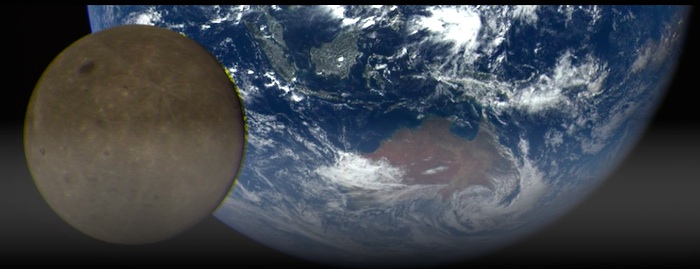.

The moon, obviously feeling a little out of the limelight, has carried out the mother of all "photobombs" in front of the Earth while an orbiting satellite captured the perfect shot of its rear end... erm, far side.
-
What makes this lunar photobomb so special is that we're seeing a side to the moon we Earthlings never see from our planet's surface. The moon is tidally locked with Earth, meaning the moon's spin matches its orbit, ensuring the same face is always facing Earth. To see the lunar far side, we need to send a camera beyond the moon's orbit and look back at Earth, which is exactly what the NASA Earth Polychromatic Imaging Camera (EPIC) does. And the sequence of images have picked out some beautiful detail in the moon's terrain.
The last time the moon dashed in front of the Earth from EPIC's perspective was nearly a year ago, on July 15, 2015.
DSCOVR sits in a region of gravitational stability (called a Lagrangian Point) one million miles above the surface of our planet in the direction of the sun. While the satellite's primary mission is to monitor the space weather environment surrounding Earth, EPIC provides a high-definition view of our planet to track weather patterns, cloud cover, aerosols and vegetation . But as the satellite is constantly looking at the day-time Earth, it has a permanent view of Earth's sunlit hemisphere as it rotates.
Though EPIC's primary mission is scientific, watching the moon glide by in its orbital dance is a beautiful reminder of the natural satellite that kept its far side secret until 1959 when the Soviet Luna 3 mission flew past to snap the first low quality, yet historic photos. Now we can occasionally see the moon's far side pop into view in glorious high-definition.
Moon, you can photobomb the Earth whenever you like.
Quelle: Seeker
4402 Views
